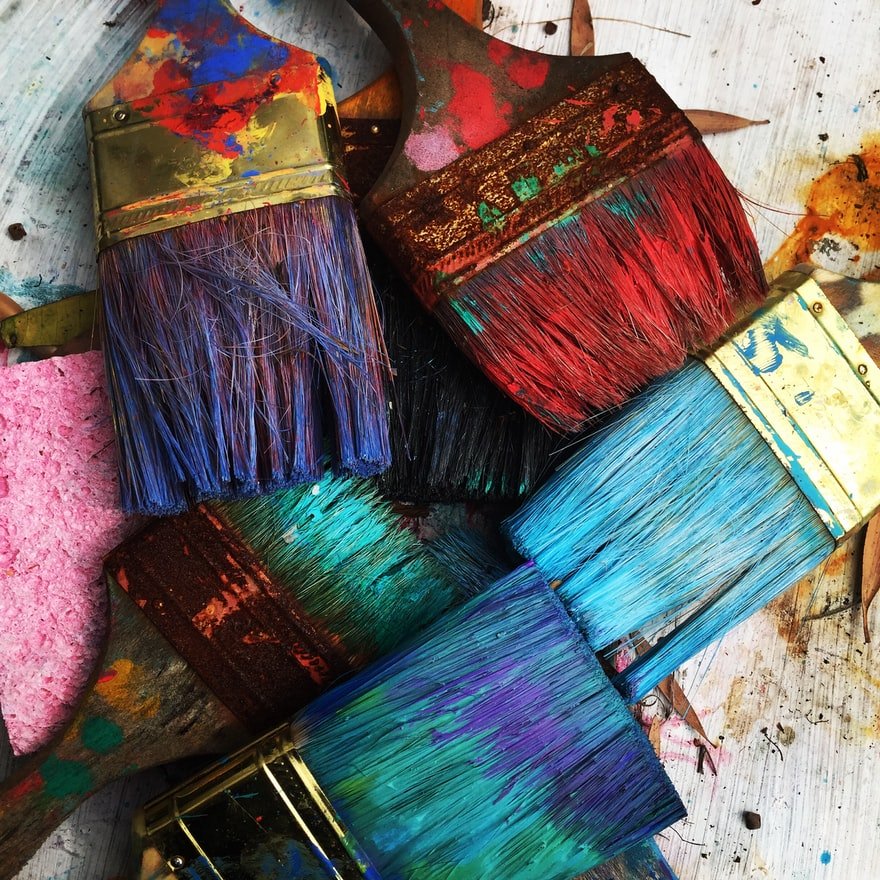ADRIAN MCKERRACHER:
HOW METAPHOR CAN CHANGE WHAT YOU MAKE AND HOW YOU MAKE IT
On Oct 10 2019, writer and artist Adrian McKerracher, visiting the University of Manitoba’s School of Art, gave a riveting lecture on the value of using metaphor in creative work. Drawing on his own experiences, McKerracher described the many benefits of metaphors as a construct, and as a way not only to improve upon literary description, but also as a framework within which one cam approach creative work and the world in general.
Metaphor, essentially, is saying that “a” equals “b.” In this sense, it is the most easily accessible way of transforming the world. McKerracher encouraged thinking about metaphor as not just a literary device, but as a cognitive mechanism that could be fundamental to the way that we think. In using metaphor, we take what we know and use it to describe or better understand something we don’t know.
In demonstrating the many ways through which the use of metaphor pervades our everyday lives, McKerracher provided many examples of metaphors to describe creativity. Creativity is illumination, it is an algorithm or formula, it is an incubation process, competition, combination, it is a garden, an organism, a dance, a game, an angel or a demon.
At a time in his life when he had began facing self-doubts and began contemplating the banality and possible failure of his own creativity, McKerracher took a trip to Buenos Aires, on a quest to meet writers and to really investigate what it meant to be a creative person. During this journey of discovery, he started collecting an archive of metaphors to try to describe the creative process. In his lecture, he argued that a writer must not only learn to hear himself, but to write himself. Argentina, associated with writers like Luis Borges and Julio Cortazar, was a huge source of inspiration for McKerracher. He reminisced on how Buenos Aires in particular revealed itself to him as a composite of fantasies, hopes and books, as he chased down every writer he could find, asking questions like “Where do ideas come from?” and “How do you know when your ideas are good?”
Metaphor, he explained, provides access to magic, wherein we can say one thing is something else. It asks, how could the world be otherwise? It is an interesting tool of meaning-making. It is something we do everyday. We employ metaphors when we wish to explore abstract or complex ideas, like love, death or time. However, he pointed out, choosing one particular metaphor closes one off from others. So the question becomes, how does one keep the search for metaphors fresh?
Metaphor can be approached as a non-iterative process, so that rather than being sequential, the metaphor always expands outward, creating endless possibilities. This conscious consideration of metaphor is what he referred to as “metaphor literacy,” which is ongoing and generative.
Metaphor has the potential to revolutionize the ways in which we approach creative work. McKerracher asked us to consider this: “What is the language you use to describe your work?” The language in which we think about our work matters. He emphasized the generative, pre-association moment as the most useful when creating metaphors. For instance, in the sentence, “Juliet is…” the huge moment of potential is encapsulated in the ellipses; there is an endless possibility of words that could be used to describe what Juliet is like. In describing what he called “the implicit, melancholic longing of metaphor,” McKerracher pointed out that metaphor always wants to be something else, it always wants more.
He also had some good advice for attendees to reflect on. In the creative process, we never know exactly what we’re going to make when we set out to make it. The things we create are the end result of “living with a question that matters.” Asking how things could be different than they are is a crucial part of the creative process. To him, creativity is “a way of being in the world.” McKerracher addressed the question all artists and creatives ask at some point in their careers: Why should I work on something when it has been done so much better by others? He answered that it was one’s responsibility to oneself, to find one’s own way of describing things, to relate one’s own experience. He used the metaphor of an apple: even though nearly everyone has eaten an apple, nobody knows what an apple tastes like to you. We owe it to ourselves, in our various forms of creating, to express our unique views on the world around us; these can never be replicated by anyone else, ever.
Adrian McKerracher covers these and other insightful perspectives on the nature, usefulness and power of metaphor in his book What it Means to Write: Creativity and Metaphor.
March 7, 2020

